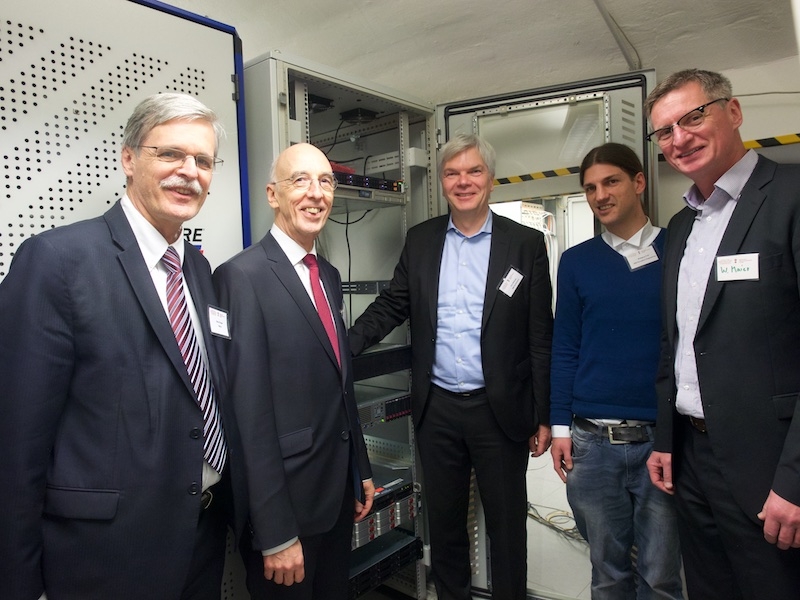attempto online - Research
30.01.2018
Applied machine learning research: IBM R&D and University of Tübingen announce cooperation
IBM R&D and University of Tübingen announced a cooperation in the area of applied machine learning research which has become very important for both partners. Among a variety of innovative research subjects in this domain Pervasive Eye Tracking is a truly fascinating one. The human gaze reveals critical cues for human communication and interaction. These cues, made understandable to computers, can revolutionize the ways how we interact with smart devices in specific environments as well in our everyday living.
A prominent example is an autonomous car that needs to monitor the take-over readiness of the driver to be prepared for critical traffic situations. Another complex situation is eye movement and eye-hand coordination in neurosurgery that gives insights about specific skills in this domain and can be used for training surgeons. In general smart systems will dramatically benefit from this research as they are enabled to better understand the context of their human users resulting in an insightful and more emphatic behavior.
To support these computationally intensive applications IBM provides expertise and a high performing computing system that has been designed for efficiently tackling complex learning models. This dedicated 'PowerAI' platform is given to the university as part of an IBM Shared Research Award which is presented to Professor Wolfgang Rosenstiel, dean of the Faculty of Science at the University of Tübingen. As stated by Dirk Wittkopp, VP IBM Germany Lab, the cooperation continues the long year and successful relationship of both parties in a very promising new domain.
Wolfgang Rosenstiel added that this AI platform fits perfect to the strategy of the faculty and the university, where artificial intelligence and especially machine learning are of strategic importance.
Jun.-Prof. Dr. Enkelejda Kasneci, University of Tübingen; Dr. Martin Mähler, University Relations IBM
 | Wolfgang Fuhl, Department of Computer Science, demonstrates the working process of the 'PowerAI' platform. |

